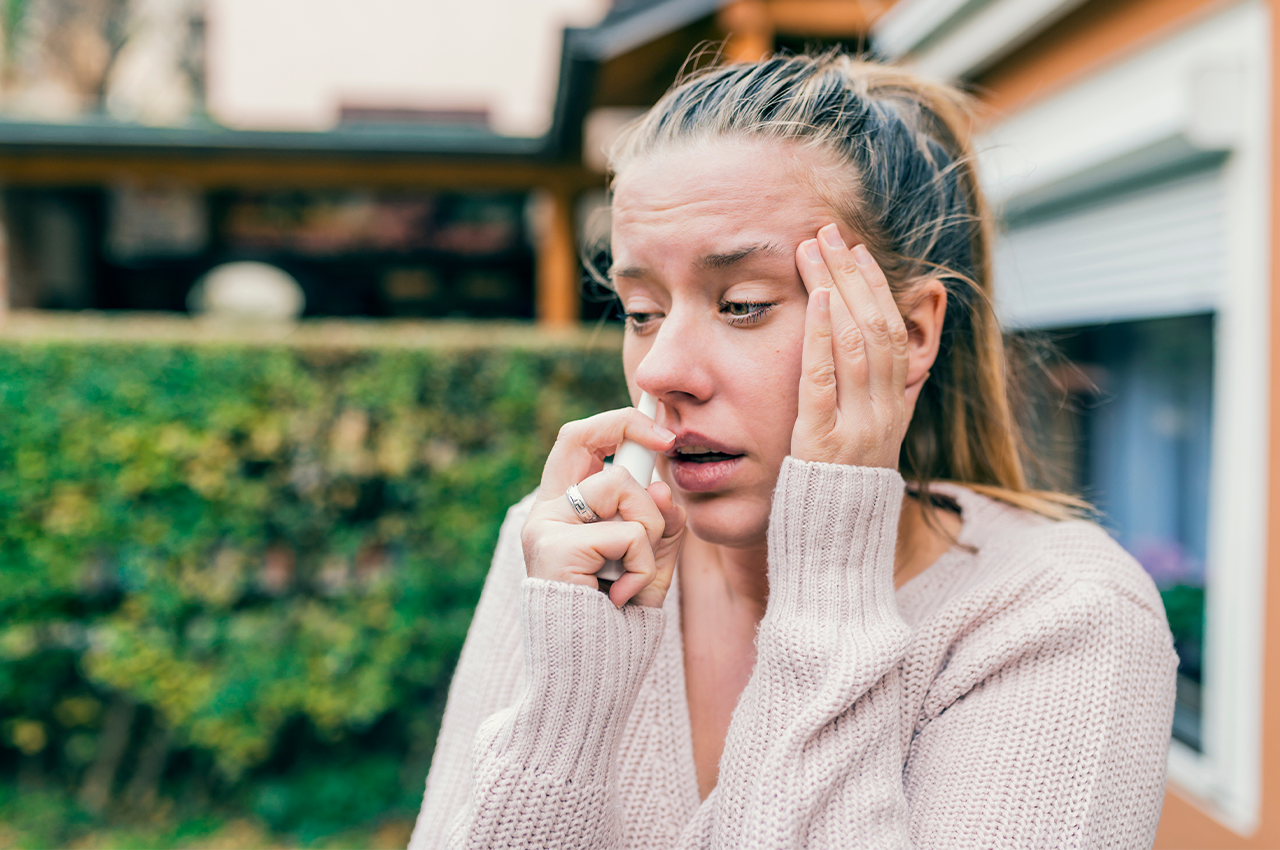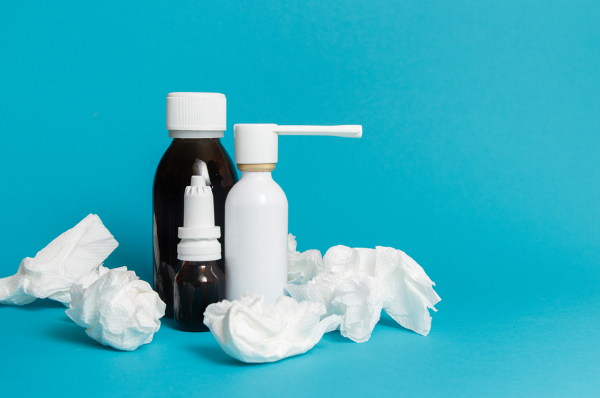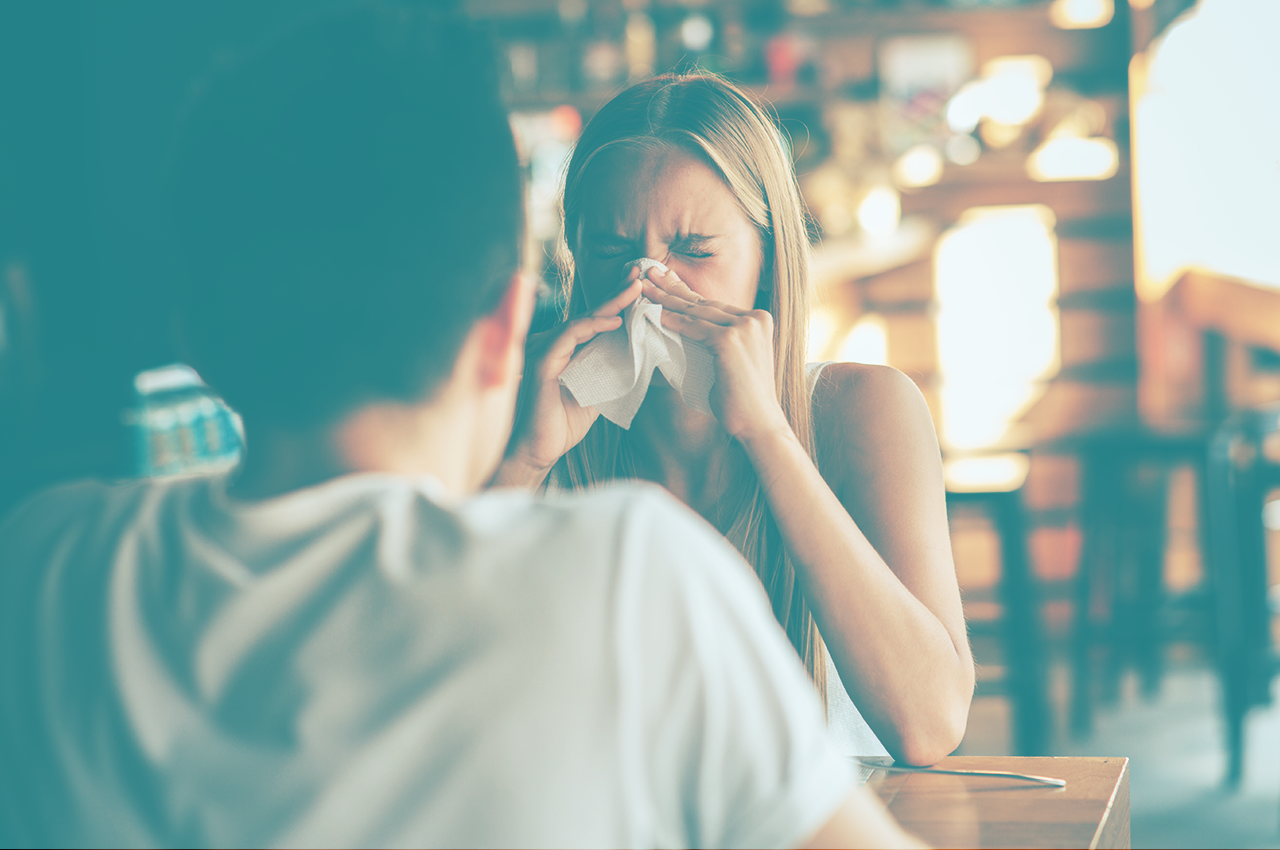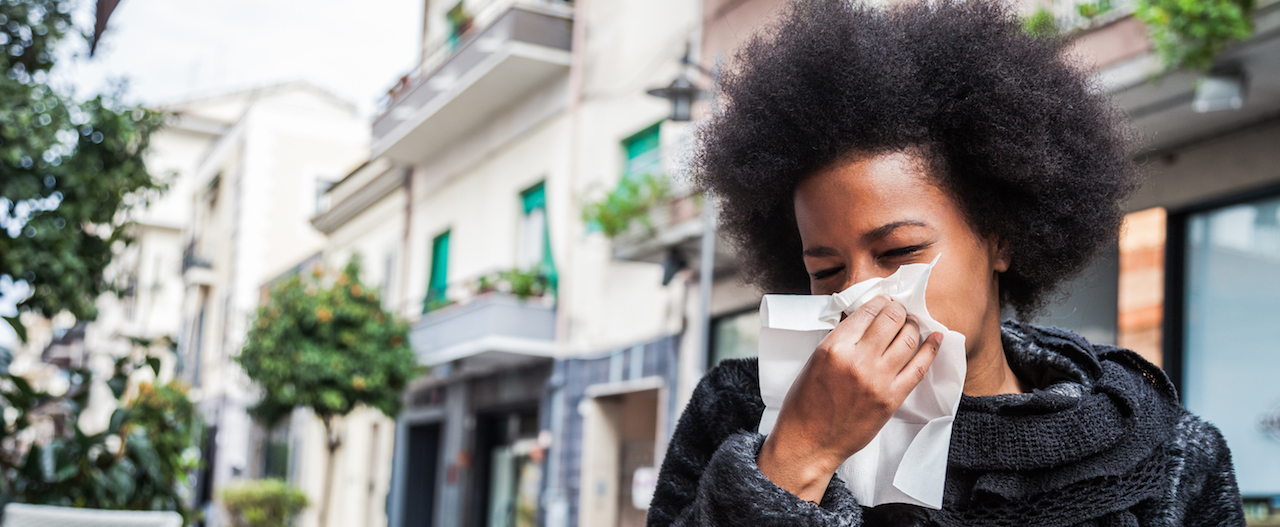Post-nasal drip happens when your sinuses produce excess mucus discharge that runs down the back of your throat.
Every day, glands in the linings of your nose, throat, airways, stomach, and intestinal tract produce mucus. The glands in your nose and throat produce mucus in order to moisten your nasal membranes and fight off infection.
Post-nasal drip can happen for a number of reasons, which include allergies, viral infections (including the common cold), sinus infections, irritants in the air (like fumes or dust), certain weather conditions (especially cold, dry air) and spicy foods.
Less common causes include something stuck inside the nose (more common in small children), pregnancy and as a side effect of certain medications.
When too much mucus builds up, post-nasal drip develops. Symptoms include :
- A sensation of liquid dripping from the back of your nose and into your throat.
- A cough that tends to worsen at night and/or when you’re lying down.
- Sore throat or hoarse voice.
- Tickling, scratchy, or itchy sensation at the back of your throat.
What can you do about it?
- Treatment depends on the cause.
- Antibiotics can clear up a bacterial infection.
- Antihistamines and decongestants can help with postnasal drip caused by sinusitis and viral infections.
- Although antihistamines can help, these can cause some mucus to thicken.
Always consult your doctor before taking any over the counter medication for post-nasal drip. Side effects range from dizziness to dry mouth.
Other methods you can try:
- Use saline nasal sprays to flush mucus, bacteria, allergens, and other irritating things out of the sinuses.
- Use a humidifier to increase the moisture in the air. Dry air can worsen postnasal drip symptoms
- Thin your mucus. Thick mucus is stickier and more likely to bother you, so keeping it thin helps prevent blockages in the ears and sinuses. A simple way to do this is to drink more water.
- Avoid cigarette smoke. Chemicals in cigarettes can irritate your nasal passages, causing an increase in mucus production
- Gargle with warm salt water. Gargling may help to clear mucus from the back of the throat and soothe a sore throat.
Call your doctor if:
- You have new symptoms, or your symptoms are worsening.
- You have trouble breathing because you’re congested.
- You have a fever or other signs of an infection
While post-nasal drip is sometimes temporary, if you experience symptoms regularly, be sure to talk with your doctor to determine the underlying cause.
References:
- https://www.verywellhealth.com/post-nasal-drip-remedies-89304
- https://www.health.harvard.edu/staying-healthy/treatments-for-post-nasal-drip
- https://www.health.com/condition/cold-flu-sinus/how-to-get-rid-of-postnasal-drip?slide=b8bf68de-09ca-487e-8ee8-0ee45bddd9b3#b8bf68de-09ca-487e-8ee8-0ee45bddd9b3
- https://www.webmd.com/allergies/postnasal-drip#1





